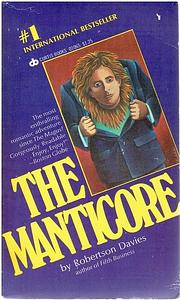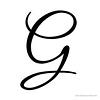Take a photo of a barcode or cover
I have of late felt lost in time, and reading Robertson Davies hasn't helped. This book is a troubling palimpsest for me. My high school years were always influenced by strains of Jungian theory, which is horrible in how appropriate it is. The primary English teacher was a fan of Jung and Davies and it played a particularly large role in the Grade 12 English course, particularly the much-anticipated day when the class would go through the "Jungian Journey" ("Imagine yourself in a forest..."). I heart about it in Grade 9, and defeated the efficacy by getting lead through it by a couple of Grade 12 girls. We were at the school after hours, I think the band had been out playing or fundraising or I think it was carolling in Chesley, we were having a potluck dinner in the Home Ec room, and it was a friend's older sister, the school president (which me and the friend would later become), and [b:Fifth Business|74406|Fifth Business|Robertson Davies|https://d.gr-assets.com/books/1170852646s/74406.jpg|603433] was mentioned, and Jung, and symbols, and so on.
A few months later Erin was talking about Jung and synchronicity and how much that same English teacher liked the theory of it. Jung would always enter in this way, obliquely, always lurking there in the dark corners of my teenage education. Appropriate.
When I got to Grade 12 the English teacher was largely absent; we didn't read Fifth Business; I was in a bad way. I dropped the class with twelve days left and took it a second time the following year, where the class was what it was supposed to be, Fifth Business and all. Reading this book brought all these flashes of moments and years and feelings and more into a strange palimpsest. I'm glad I didn't spend more than 24 hours with it. I need to figure out a way to get back into my own time, but am oddly hopeful that such a ponderous book as this might be part of the way there.
A few months later Erin was talking about Jung and synchronicity and how much that same English teacher liked the theory of it. Jung would always enter in this way, obliquely, always lurking there in the dark corners of my teenage education. Appropriate.
When I got to Grade 12 the English teacher was largely absent; we didn't read Fifth Business; I was in a bad way. I dropped the class with twelve days left and took it a second time the following year, where the class was what it was supposed to be, Fifth Business and all. Reading this book brought all these flashes of moments and years and feelings and more into a strange palimpsest. I'm glad I didn't spend more than 24 hours with it. I need to figure out a way to get back into my own time, but am oddly hopeful that such a ponderous book as this might be part of the way there.
I have not yet finished the trilogy- although I plan to.
From reading the reviews- I may be one of the few readers who at least equally (if not at times more) enjoyed David as a narrator. Perhaps it was just the fact that the change of viewpoint added further depths to the characters of this universe. Or possibly the Jungian interludes broke the pattern of the typical novel and held my interest. Either way, I enjoyed seeing Boy, Leola, Dunstan, and the rest through a new pair of eyes.
Enjoyed the discussion of archetypes and myths in relation to Dunstan's obsession with the saints. Is anyone in this novel able to take people as they are without casting them in roles of good and evil?
Excited to see what the final part of this trilogy brings!
From reading the reviews- I may be one of the few readers who at least equally (if not at times more) enjoyed David as a narrator. Perhaps it was just the fact that the change of viewpoint added further depths to the characters of this universe. Or possibly the Jungian interludes broke the pattern of the typical novel and held my interest. Either way, I enjoyed seeing Boy, Leola, Dunstan, and the rest through a new pair of eyes.
Enjoyed the discussion of archetypes and myths in relation to Dunstan's obsession with the saints. Is anyone in this novel able to take people as they are without casting them in roles of good and evil?
Excited to see what the final part of this trilogy brings!
funny
lighthearted
reflective
medium-paced
Plot or Character Driven:
Character
Strong character development:
Complicated
Loveable characters:
Complicated
Diverse cast of characters:
No
Flaws of characters a main focus:
Yes
The Manticore is the second book of the Deptford Trilogy and it’s my favorite so far! The majority of the book takes place in the office of a psychoanalyst, helping the main character, David, to adapt to life after his father’s death.
The analogies used by the doctor throughout treatment, intended to “avoid jargon” are the most interesting aspects of David’s treatment. I really enjoyed the dream analysis and David’s emotional recovery throughout the story.
While The Manticore picks up where Fifth Business left off, the narrator changes, and with that, the outlook and feel of the story change considerably. I really enjoyed re-reading the significant events from Fifth Business and comparing them to David’s memories of the same events, as they became relevant during his treatment. Reading from David’s point of view rounded out the story of and I’m really looking forward to reading the final book in the trilogy, World of Wonders, in which we go back to the original narrator.
The analogies used by the doctor throughout treatment, intended to “avoid jargon” are the most interesting aspects of David’s treatment. I really enjoyed the dream analysis and David’s emotional recovery throughout the story.
While The Manticore picks up where Fifth Business left off, the narrator changes, and with that, the outlook and feel of the story change considerably. I really enjoyed re-reading the significant events from Fifth Business and comparing them to David’s memories of the same events, as they became relevant during his treatment. Reading from David’s point of view rounded out the story of and I’m really looking forward to reading the final book in the trilogy, World of Wonders, in which we go back to the original narrator.
challenging
reflective
sad
tense
medium-paced
Plot or Character Driven:
Character
Strong character development:
Yes
Loveable characters:
Complicated
Diverse cast of characters:
No
Flaws of characters a main focus:
Yes
This is the sequel to “Fifth Business” and is written from the point of view of Boy Staunton’s son, now an adult. He is relating his childhood and teenage years to a therapist in Zürich. He is rather tiresomely opposed to Jungian ideas but has succumbed to analysis as a last resort. He seems to have idolized his father, without realizing what a horrible person he was. The book does a great job of introducing some key Jungian concepts without beating the reader over the head with them.
I’ve read this book many, many times and it never fails to be interesting.
I’ve read this book many, many times and it never fails to be interesting.
A very good read but does not stand on its own, without Fifth Business.
It is a book of analysis, literally and figuratively.
It is a deeper look at the themes introduced in the first book of the trilogy.
It is a book of analysis, literally and figuratively.
It is a deeper look at the themes introduced in the first book of the trilogy.
A full, rich and rewarding read with a brilliant construction.Iit's comforting, educational and entertaining all at the same time. Though the ending left me hanging a bit, I think that was the point. I keep picking it apart and turning it over which gives the tale a more long reaching and lingering effect and keeps the characters alive in my imagination. I came away from this book finding Jungian analysis so interesting (much the same way I came away from FIFTH BUSINESS feeling about hagiology) and that's something I never imagined I'd say. It's a novel about perceptions and my perceptions were changing constantly--keeping me turning the pages at a surprisingly rapid pace. I was also impressed at how this tale is grafted onto FB but from a completely different angle so it could quite possibly stand alone--though I'm sure I got more out of this one by reading FB first. Am really looking forward to reading WORLD OF WONDERS -- the third in the trilogy.
Classic Robertson Davies; this novel starts out slow, and builds on itself to become something entirely different by the final pages. Excellent exploration of character(s), both past and present, and of Jungian theory. This is an exercise in deconstruction that turns itself inside out.




